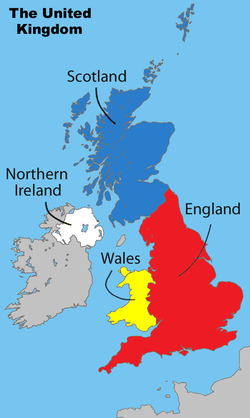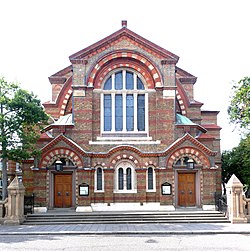
Greek presence in the UK dates back to ancient times when Greek traders and explorers established connections with the British Isles. The earliest recorded evidence of Greeks in Britain can be traced to the Roman period, with Greek mercenaries, merchants, and scholars settling in Roman occupied territories. Greek influence continued during the Byzantine era, with Greek-speaking individuals traveling to the British Isles.
Research your ancestors on MyHeritage
Nineteenth and twentieth century immigrationNineteenth and twentieth century immigration
The modern wave of Greek immigration to the UK began in the late nineteenth century. Economic hardships and political instability in Greece led to a significant number of Greeks seeking new opportunities abroad. London became a major destination due to its burgeoning industrial and trading sectors. Many Greeks found work in the shipping industries, while others established businesses and trade networks.
Another significant community that emerged during this period was in Liverpool, which had a flourishing maritime industry. Greek sailors and traders settled in the port city, further fostering economic and cultural ties between the two countries.

As the nineteenth century progressed, Greek communities began to consolidate in specific neighborhoods across the UK. Notably, the area around Finsbury Park in London became a focal point for Greek settlement. This community hub allowed Greeks to preserve their cultural traditions, language, and religious practices.
By the early twentieth century, a Greek community began to take shape in London. A focal point of this community was the area around Clerkenwell and Soho, where Greek cafes, restaurants, and shops flourished. These establishments served as gathering places for Greeks. The Greek Orthodox Church of St. Sophia, built in 1877 became a spiritual and cultural center for the community.
Greek churches and schools played a crucial role in preserving Greek identity and connecting generations of immigrants to their homeland. These institutions fostered a sense of community and provided support for newcomers adjusting to life in the UK.
Wars and migrationWars and migration
The two World Wars had a profound impact on the Greek diaspora in the UK. During World War I, many Greeks volunteered to fight alongside the Allies. Following the conflict, economic hardship and political instability in Greece triggered another wave of migration to the UK.
Similarly, World War II forced many Greeks to flee their homeland, seeking refuge in Britain. The Greek government-in-exile operated from London during the war, further strengthening ties between the two nations.
The Greek Civil War (1946-1949) and subsequent political unrest in Greece led to another wave of immigration to the UK. Many Greeks sought refuge in Britain, escaping political persecution and economic instability. The Greek community grew in size and diversity, with newcomers settling in various parts of the country.
The late twentieth and early twenty-first centuries saw an increase in Greek professionals settling in the UK, including academics, scientists, and healthcare workers. The expansion of the European Union facilitated labor migration, leading to an influx of Greeks seeking employment and educational opportunities.
Famous people of Greek descent in the United KingdomFamous people of Greek descent in the United Kingdom

- Theo James - actor, born Theodore Peter James Kinnaird Taptiklis, son of Philip Taptiklis.
- Sophia Kokosalaki - Greek fashion designer based in London
- K. Koke (Kevin Georgiou) - Rapper
- Constantine Michael Louloudis - Greek-British rower, Olympic Champion
- Alexis Lykiard - British writer of Greek heritage
- Alexander Arnold Constantine Issigonis - British-Greek automotive designer
- Alexis Korner (Alexis Andrew Nicholas Koerner) - British blues musician and radio broadcaster
- Alexis Petridis - British journalist, head rock and pop music promoter and critic
Hellenic organizations in the United KingdomHellenic organizations in the United Kingdom
- Aberdeen Scottish Hellenic Society
- Anglo-Hellenic League
- Association of Constantinopolitan Greeks in the UK
- Bristol Anglo-Hellenic Cultural Society
- Cultural Organisation "ITHACA"
- GCSS - The Greek and Cypriot Society of Strathclyde
- HCE - Hellenic Community of Edinburgh
- Hellenic Community of Manchester
- Peloponnesian Association of Great Britain
- Pontian Society of the UK

